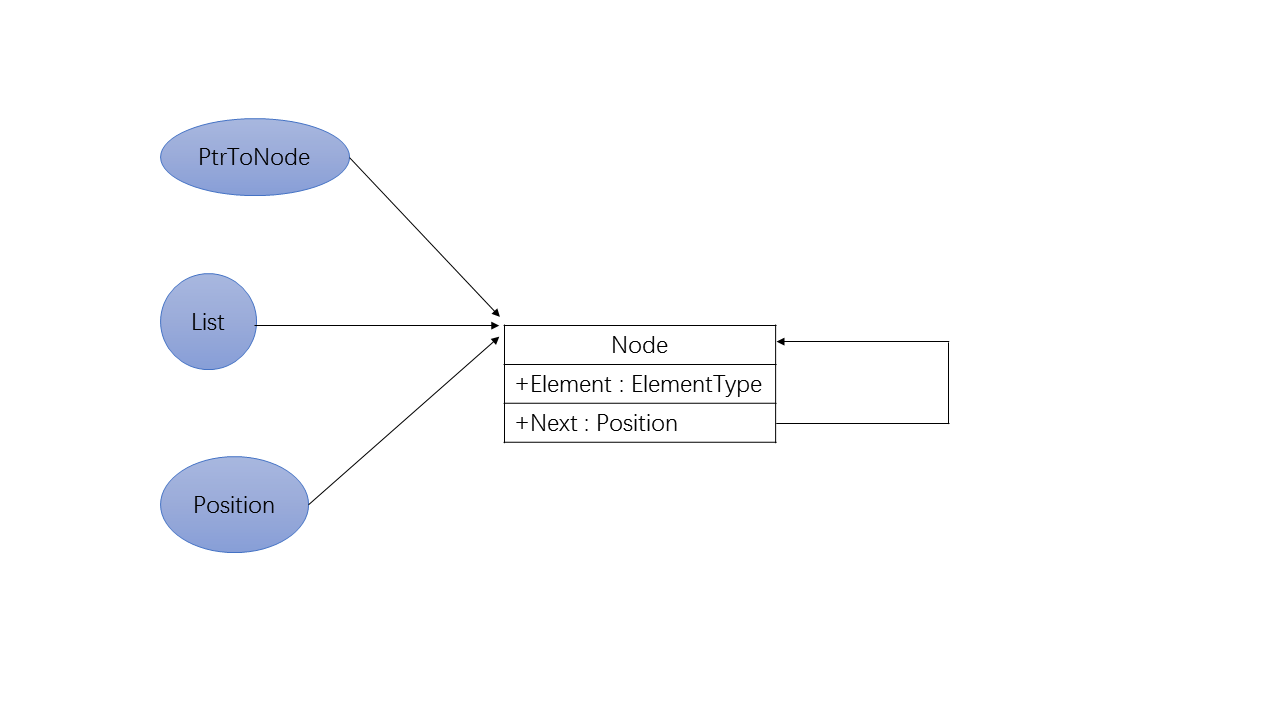
fatal.h
#include <stdio.h>
#include <stdlib.h>
#define Error(Str) FatalError(Str)
#define FatalError(Str) fprintf(stderr, "%s
", Str), exit(1)
linkedlist.h
typedef int ElementType;
#ifndef _List_H
#define _List_H
struct Node;
typedef struct Node *PtrToNode;
typedef PtrToNode List;
typedef PtrToNode Position;
List MakeEmpty(List L);
int IsEmpty(List L);
int IsLast(Position P, List L);
Position Find(ElementType X, List L);
void Delete(ElementType X, List L);
Position FindPrevious(ElementType X, List L);
void Insert(ElementType X, List L, Position P);
void DeleteList(List L);
Position Header(List L);
Position First(List L);
Position Advance(Position P);
ElementType Retrieve(Position P);
#endif
linkedlist.c
#include "linkedlist.h"
#include <stdlib.h>
#include "fatal.h"
/* Place in the interface file */
struct Node
{
ElementType Element;
Position Next;
};
List MakeEmpty(List L)
{
if (L != NULL)
DeleteList(L);
L = malloc(sizeof(struct Node));
if (L == NULL)
FatalError("Out of memory!");
L->Next = NULL;
return L;
}
/* Return true if L is empty */
int IsEmpty(List L)
{
return L->Next == NULL;
}
/* Return true if P is the last position in list L */
/* Parameter L is unused in this implementation */
int IsLast(Position P, List L)
{
return P->Next == NULL;
}
/* Return Position of X in L; NULL if not found */
Position Find(ElementType X, List L)
{
Position P;
P = L->Next;
while (P != NULL && P->Element != X)
P = P->Next;
return P;
}
/* Delete from a list */
/* Cell pointed to by P->Next is wiped out */
/* Assume that the position is legal */
/* Assume use of a header node */
void Delete(ElementType X, List L)
{
Position P, TmpCell;
P = FindPrevious(X, L);
if (!IsLast(P, L)) /* Assumption of header use */
{ /* X is found; delete it */
TmpCell = P->Next;
P->Next = TmpCell->Next; /* Bypass deleted cell */
free(TmpCell);
}
}
/* If X is not found, then Next field of returned value is NULL */
/* Assumes a header */
Position FindPrevious(ElementType X, List L)
{
Position P;
P = L;
while (P->Next != NULL && P->Next->Element != X)
P = P->Next;
return P;
}
/* Insert (after legal position P) */
/* Header implementation assumed */
/* Parameter L is unused in this implementation */
void Insert(ElementType X, List L, Position P)
{
Position TmpCell;
TmpCell = malloc(sizeof(struct Node));
if (TmpCell == NULL)
FatalError("Out of space!!!");
TmpCell->Element = X;
TmpCell->Next = P->Next;
P->Next = TmpCell;
}
/* Correct DeleteList algorithm */
void DeleteList(List L)
{
Position P, Tmp;
P = L->Next; /* Header assumed */
L->Next = NULL;
while (P != NULL)
{
Tmp = P->Next;
free(P);
P = Tmp;
}
}
Position Header(List L)
{
return L;
}
Position First(List L)
{
return L->Next;
}
Position Advance(Position P)
{
return P->Next;
}
ElementType Retrieve(Position P)
{
return P->Element;
}
testlinkedlist.c
#include <stdio.h>
#include "linkedlist.h"
void PrintList(const List L)
{
Position P = Header(L);
if (IsEmpty(L))
printf("Empty list
");
else
{
do
{
P = Advance(P);
printf("%d ", Retrieve(P));
} while (!IsLast(P, L));
printf("
");
}
}
int main()
{
List L;
Position P;
int i;
L = MakeEmpty(NULL);
P = Header(L);
PrintList(L);
for (i = 0; i < 10; i++)
{
Insert(i, L, P);
PrintList(L);
P = Advance(P);
}
for (i = 0; i < 10; i += 2)
Delete(i, L);
for (i = 0; i < 10; i++)
if (Find(i, L) == NULL)
printf("Element %d Find fails
", i);
printf("Finished deletions
");
PrintList(L);
DeleteList(L);
return 0;
}
函数调用关系图(Call graph)